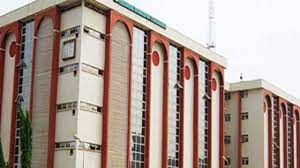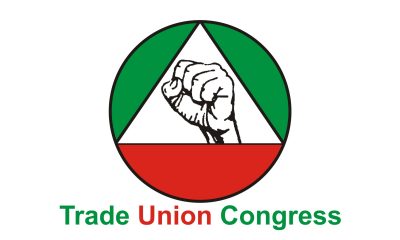Business
FG Begins 4th MSMEs Survey – NBS

The Federal Government is set to begin the fourth round of the Micro, Small and Medium Scale Enterprises (MSMEs) survey.
The disclosure was made yesterday in Abuja at a news conference jointly addressed by the office of the Statistician-General of the Federation and the Small and Medium Enterprises Development Agency of Nigeria (SMEDAN).
Director, Real Sector and Household Statistics Department at the Nigerian Bureau of Statistics, Mr Adeyemi Adeniran, represented Statistician-General of the Federation, Mr Yemi Kale, at the news conference.
Adeniran said that the survey would begin on Monday with a train-the-trainers workshop, while field work would start on August 21.
He said that the survey which would be carried out in the 36 states and the FCT would cover 2019 and 2020.
He added that three surveys had been successfully carried out in 2010, 2013 and 2017.
Adeniran said that in the fourth round, the concept of Nano enterprises, a concept considered as micro enterprises, would be introduced.
‘The new sub-division (Nano) refers to those enterprises that have only one or two persons engaged in their operations, while the micro enterprises are those enterprises with three to nine persons engaged in their operations.
“On this note, the survey will henceforth be called NMSMEs survey. In addition, a new module was introduced into the survey, which is the impact of Covid-19 on business operations.
“It seeks to identify how enterprises coped during the pandemic period and what areas of support and intervention they will require from government at this post-covid lockdown period,’’ he said.
On the objectives of the survey, Adeniran said that they would help to establish a credible and reliable database for the MSMEs.
He said that they would also contribute to job and wealth creation over a three-year period.
Adeniran added that they would help to assess the contributions of the MSMEs sub-sector to GDP and identify the number of NMSMEs owned on gender basis.
“The survey will also identify the skills gap in the sector; ascertain top priority areas that need government interventions and assistance and identify possible financing windows to raise low cost financing,’’ he said.
On the impact of past exercises, Adeniran said they allowed government to look inward into those sectors within the MSMEs that were making impact on the GDP to strengthen them.
He added that they looked at those that were not making much contribution to the GDP to bring them up to speed so that holistically, the improvement in all sectors within the MSMEs would lead to overall improvement in growth.
“We also know that the MSMEs sub-sector of our economy employs a huge number of persons; they engage a lot of workers in their daily activities.
“To this end, they are able to cushion the effects of unemployment that Nigeria is witnessing.
“If not for the MSMEs that are still serving the communities, the labour force population and the unemployment we have in the country will be more than what we are experiencing now,’’ Adeniran added.
In his remarks, the Director-General, Small and Medium Enterprises Development Agency of Nigeria (SMEDAN) Mr Dikko Radda, said that MSMEs were important to the sustainable growth of the economy.
He said the last survey indicated that the sub-sector contributed 49.78 per cent to the nation’s GDP.
According to him, they also accounted for more than 76 per cent of total employment and contributed 7.64 per cent to total export.
Radda said that the surveys gave SMEDAN the leverage to prepare programmes that would have impact on the sub-sector.
Business
PETROAN Accuses Crude Oil Producers Of Diverting 500,000bpd Refineries-Bound Product
The Petroleum Products Retail Outlet Owners Association of Nigeria (PETROAN) has alleged that oil producers were diverting 500,000 barrels per day (bpd) of crude oil intended for local refineries.
The claim was made public on Wednesday amid ongoing discussions about the challenges facing Nigeria’s refining sector.
The association’s publicity secretary, Joseph Obele, who made this known, emphasised that the diversion of the crude allocations has led to the abandonment of many refineries, which were struggling to operate due to insufficient feedstock.
Obele accused oil producers of prioritising quick foreign exchange gains over compliance with domestic supply obligations.
The PETROAN spokesman commended the Nigerian Upstream Petroleum Regulatory Commission (NUPRC) for recently banning the export of crude oil allocated for domestic refining, a move they believed will enhance local refining capabilities and reduce the nation’s reliance on imported petroleum products.
He said, “Approximately 500,000 barrels of crude oil per day are allocated for domestic refining, but these volumes often find their way to the international market”.
The situation has prompted calls for immediate action against both producers and companies that fail to adhere to the new regulations.
The issue has sparked a heated debate among industry stakeholders. While oil producers argue that local refineries often do not meet commercial terms, refiners counter that producers are neglecting their supply commitments in favour of international markets.
This ongoing blame game complicates efforts to stabilize local crude supply and improve refinery operations.
PETROAN’s national president, Billy Gillis-Harry, urged swift enforcement of the export ban to ensure that local refineries receive their fair share of crude oil.
He expressed optimism that this policy could lead to a more self-sufficient refining sector in Nigeria, ultimately benefiting consumers through reduced prices and improved product availability.
Business
FG Targets Reduction In External Borrowing
The Federal Government has said it is committed to reducing reliance on external debt financing and promoting private sector-driven economic growth as part of its strategy for long-term fiscal stability.
The Minister of Finance and Coordinating Minister of the economy, Wale Edun, who made this known during a meeting with World Bank executive director, Dr. Zainab Shamsuna Ahmed, emphasised Nigeria’s shift towards alternative financing sources and investment-friendly policies.
He acknowledged the World Bank’s role in Nigeria’s development but stressed that the government is prioritizing a business-friendly environment to encourage private-sector investments.
“Our focus is on reducing dependency on external borrowing while ensuring that Nigeria’s economic policies foster long-term, private-sector-led growth”, he stated.
In his response, Dr. Ahmed, who previously served as Nigeria’s Minister of Finance, commended the country’s ongoing macroeconomic reforms, which she said have boosted fiscal stability and investor confidence.
Ahmed also noted the World Bank’s recent financial reforms, which have increased its lending capacity, making an additional $150 billion available over the next decade.
A key highlight of the meeting was Nigeria’s role in “Mission 300”, the World Bank’s initiative to provide electricity access to 300 million Africans.
Edun reaffirmed that power infrastructure remains a top priority for the government, as it is critical to economic growth, industrial expansion, and private-sector competitiveness.
“Electricity access is a game-changer for Nigeria’s economy, and we are committed to playing a leading role in Mission 300 to ensure sustainable development”, he said.
He further emphasised that President Bola Tinubu remains dedicated to strengthening Nigeria’s economic foundation, shifting away from external borrowing, and fostering a resilient, investment-driven economy.
Business
Dangote Refinery Exports Jet Fuel To Saudi Aramco
Dangote Petroleum Refinery had exported two jet fuel cargoes to Saudi Aramco, the world’s largest oil producer and a leading integrated oil and gas company globally.
Saudi Aramco is a majorly state-owned petroleum and is the national oil company of Saudi Arabia.
President of Dangote Group, Aliko Dangote, disclosed this during a visit by a team of the Nigerian Economic Summit Group (NESG) to both Dangote Fertiliser Limited and the Dangote Petroleum Refinery & Petrochemicals in Ibeju Lekki, Lagos.
He said exporting products to the global markets, especially Saudi Aramco, was because of his refinery’s world-class standards and advanced technology.
“We are reaching the ambitious goals we set for ourselves, and I’m pleased to announce that we’ve just sold two cargoes of jet fuel to Saudi Aramco”, he said.
According to him, since it began in 2024, the refinery has steadily increased its output, reaching 550,000 barrels per day.
While commending Aliko Dangote for establishing the $20 billion refinery – the largest single-train refinery in the world – NESG Chairman, Mr. Niyi Yusuf, stated that Nigeria needs more investments of this calibre to reach its $1 trillion economic goal.
“To achieve a $1 trillion economy, much of that must come from domestic investments. I joked during the bus ride that while others are dredging to create islands for leisure, you’ve dredged 65 million cubic tonnes of sand to create a future for the country.
“This refinery, fertiliser plant, petrochemical complex, and supporting infrastructure are monumental.
“My hope is that God will grant you the strength, courage, and health to realise your ambitions and that in your lifetime, a new Nigeria will emerge”.
Yusuf emphasised that such local industries are essential to Nigeria’s industrialisation and will help foster the growth of Small and Medium Enterprises (SMEs).
He said NESG would continue to advocate for improved investment climate to attract entrepreneurs, boost development, ensure food security, and address insecurity.
He lamented that Nigeria has become a dumping ground for foreign products, stressing that the country must support its entrepreneurs to become a global player.
“It’s inconceivable that a nation of over 230 million people, with an annual birth rate higher than the total population of some countries, is still dependent on imports to feed its citizens”, he stated.
Yusuf also praised Dangote’s bold vision for making Nigeria self-sufficient in several key sectors.
“The NESG is grateful, and I believe the nation is as well. This refinery represents the audacity of courage. It takes immense effort to do what you’ve done and still be standing and smiling.
-
News2 days ago
NGO Implants Free Pacemakers Into 22 Cardiac Patients In PH
-
Rivers2 days ago
100 Days: LG Boss Commissions Late Monarch’s Palace Fence, Solar Water Projects
-
Business2 days ago
FG Targets Power Sector Transition To Cost-Effective Tariffs
-

 Featured3 hours ago
Featured3 hours agoTUC Opposes FG’s Proposed Toll Gate On Federal Roads, Rejects Electricity Tariff Hike
-
News2 days ago
Monarchs, MOSOP Hail Tinubu Over Ogoni Varsity Approval
-
Politics2 days ago
Anambra LP Aspirant Advocates Security Details Withdrawal From Politicians
-
News23 mins ago
Old Boys Plan Rehabilitation Of GSS, Okehi
-
Rivers2 days ago
Dance Organisation Set To Hold Competition In PH

